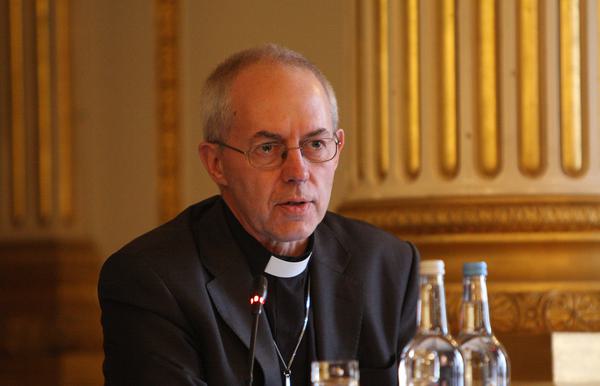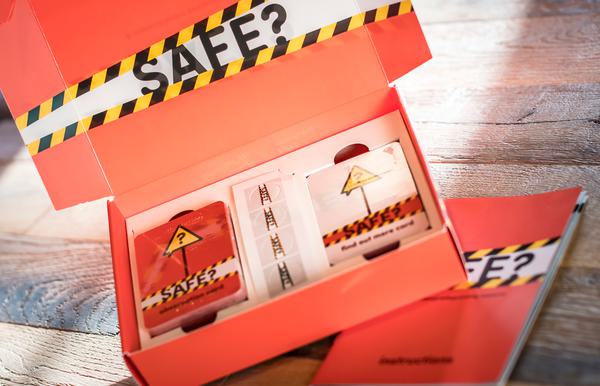Whether it’s Covid vaccines or sex & relationships, youth workers can easily find themselves confused, infuriated or even clueless as to what young people really think.
Hearing that Margaret Keenan, 90, has become the first person in the world to receive the jab as part of a COVID vaccination programme made me (like Matt Hancock) shed a few tears. Having spent most of 2020 entirely on her own, this grandmother called the injection at 6.31am yesterday morning ‘the best early birthday present I could wish for’ as it would mean she could spend time with her family and friends in the New Year.
I’ve not been living alone in 2020, but as someone who hasn’t hugged her parents since last Christmas, I welled up at the thought of an embrace happening soon. As I laid out the (socially distanced) chairs at youth group last night I began to imagine all the many readjustments to life as we’ve come to know it that a COVID-under-control world would offer us. As well as hugging my parents, putting an arm around a young person in need of comfort is pretty high up on my list. As is making hot chocolate mountains and passing round the squirty cream canister so that everyone fills their mouths with cream and then sings ‘Baby Shark’ as loudly as they can.
Saved by science?
News of a vaccine on UK shores destined to protect over-80s and some health and care staff is momentous. It’s almost inconceivable that in under a year we have not one but three vaccines to help us in our global fight against COVID. But not everyone is convinced. Up until two days ago I didn’t challenge the notion that my social media feed presented me that the anti-vac brigade were a fringe outfit, easily prone to being grumpy about most things. But then I met one. He was filming me on the first day post-lockdown. Vegan. Informed. Anti-vax. Aged 19 and not at all grumpy. ‘What do you say to your view being seen as selfish?’ another adult of my age posed. He shrugged. ‘That’s OK, but…’ then laid out some pretty interesting ideas. None that I buy into. I work in communities devastated by COVID and in urgent need of rapid recovery and help. But it got me thinking about where young people stand on the ‘to vax or not to vax’ question. So as well as setting out spaced-out seating last night, I asked the young people I’ve travelled through a few lockdowns with, what they thought about the vaccine and would they get it if it was offered to them. Again the shrug. Then the insistence that it was important for elderly relatives, and then the conversation turned to mock exams and Christmas and when they could next pour squirty cream into their mouths and sing ‘Baby Shark’ as loudly as they could.
I made that last bit up.
But it got me thinking. What must it feel like to be growing up in a world that is only made safe by science? Now that the relief is here, what are the big lessons that the emerging generations are drawing from this pandemic? Is it a renewed sense of valuing life because we realise how fragile it is? Or is there an increased apathy towards God because although we may have prayed for a vaccine, the public perception will be that humanity can solve its own problems?
With these thoughts swirling around my mind it’s no wonder that when asked to write about it for the Youthscape blog, I said no. Politely. But still no.
Not because I don’t think it matters, but because I don’t know any real answers. I’m hugely hopeful that the vaccine will positively impact young people’s lives but I don’t really know where the younger generations sit on the vaccination debate. And to be honest, I don’t think many of them do either. I could have predicted that the few I checked in with last night were reluctant to share an opinion. Did they not have one? Did they feel unsure whether their opinion matters when so often they’ve been at the bottom of the pile when it comes to national priorities? Or did they just feel fed up with yet another question about COVID?
So I don’t have any intelligent insights into the vaccine. But seeing as we’ve got this far, why don’t we talk about another subject that can often leave us (as those who’re supposed to understand young people the best), simply confused, infuriated or even clueless to what young people are thinking – and that’s sex.
Good sex choices
One of the questions I'm most regularly asked by youth workers is how they can best help young people make good decisions about sex. One email I received recently worded it like this, ‘The young people I work with are dealing with so much in the area of sex that I never had to face when I was their age. I want to help them make better decisions about it all, but where do I start?’
It’s a really important question, and an interesting one, because whether consciously meant or not, it assumes that the young people we’re working with aren’t making very good choices. Which might very well be true! I’ve spent many hours with young people, unpicking the consequences of decisions made. But I’m sure I’m not the only youth worker to admit that I don’t always know what the young people I’m working with are thinking or doing when it comes to sex. It’s interesting that with all we don’t know, we tend to believe that whatever decisions young people are making about sex, they’re probably not very good ones! Why is this?
"Are Christian leaders expecting too much? In linking good (which is often code for ‘grown up’) choices about sex with being serious about following Jesus, are we setting Christian young people up to fail?"
Mainly it’s because we can often see first-hand the crushing pressure so many young people are under to conform and perform to certain codes of belief and practice in youth culture. We see and we want to arm them not just to survive but to thrive. But it’s also not just about the external pressures they face. We also see first-hand how on the whole, young people don’t make decisions like we do, or at least like the adults we’re trying to be! They’re more likely to act on impulse, behave irrationally, misread or misinterpret situations and emotions, get involved fights and struggle to assess risk or change damaging behaviours. With a more sensitive emotional system, young people are also wired to seek greater rewards and new and stimulating experiences. Their curiosity and readiness to try new things and be all-in for something is one of the things that makes working among them so inspiring. Of course, there are many adults that act like this too, but brain studies have shown that as the adolescent brain is significantly different to the adult brain, there is a direct impact on how young people make decisions.
So when it comes to making decisions about sex, are Christian leaders expecting too much from young people?
Neurological changes in the adolescent brain are putting the teenage brain under consistent stress. In our desire to empower them to ensure their own wellbeing and growth, are we adding to that stress by expecting a level of rationality that they are neurologically incapable of? In linking good (which is often code for ‘grown up’) choices about sex with being serious about following Jesus, are we setting Christian young people up to fail? If adolescence is a time when actions are guided more by emotions and less by logic, wouldn’t it be better for us to help them handle their emotions and the fallout (guilt, shame) of the situations they’ve been in, rather than encourage adherence to and performance of a certain set of choices? Surely our goal isn’t to stop stuff happening, but to help young people when stuff happens to connect their real experiences with a real Jesus who meets them in real situations?

Or are we not expecting enough for them and from them?
In suggesting that they can’t really process and deal with the situations they’re in, are we casting them as victims of their own stage of development and inevitably at risk of other people’s decisions? Some of the choices around sex carry significant or life-long consequences, so are we being irresponsible and unloving if we don’t talk about how young people can protect themselves from situations that would lead to those consequences? By not presenting clear boundaries and goals for their sexual identity and relationships, aren’t we just sending them into a battlefield unarmed? Surely our goal is to equip them to stand firm in who Jesus says they are, and one of the best ways to do this is to help set the boundaries for their safety and success?
And what should those beliefs and boundaries be? Are they hearing what we think we’re teaching (if we are teaching them anything?) or are their ideas and values mostly being shaped by a wider culture that may seek to undermine and dismiss their interest in exploring a Biblical sexual ethic?
What do you think?
And more significantly, what do the young people you serve think?
Time for a survey
I’ve created a short survey to help surface some of the thoughts that young people who self-identify as Christians (or who are part of a church community) have about sex, and about the teaching on sex they receive from their church. I’m interested to see what they understand their church’s teaching on sex to be, how they feel about it and what they think the church should be teaching.
Do you know young people who might be up for taking part? And could you share this with them? It’s anonymous so we wouldn’t be able to track anyone’s answers back to the person who sent it or filled it in. This is about gathering general themes, not highlighting certain churches, youth groups or individuals.
Would you be interested in the findings of the survey?
Could you help get it to other youth leaders to share among young people?
How do you feel about squirting canned cream into your mouth and singing ‘Baby Shark’ really loudly?
Actually scrap that last question.
But if you could help get this survey to young people, and to those who work with young people so that they can pass it on, it would be amazing.
2020 was supposedly the year of vision. As we enter 2021, our willingness to clearly see the challenges young people are facing is going to be a necessity. But seeing clearly often starts with listening well. Whether it’s about the impact of a global pandemic or the pain of a broken heart, we don’t need to have all the answers to know that often what young people need to do is listen. (And ask some pretty good questions that surface some really helpful insights!)
So thanks for reading this.
And may you and those you love and lay out socially distanced chairs for, have a comfort and joy filled Christmas.











